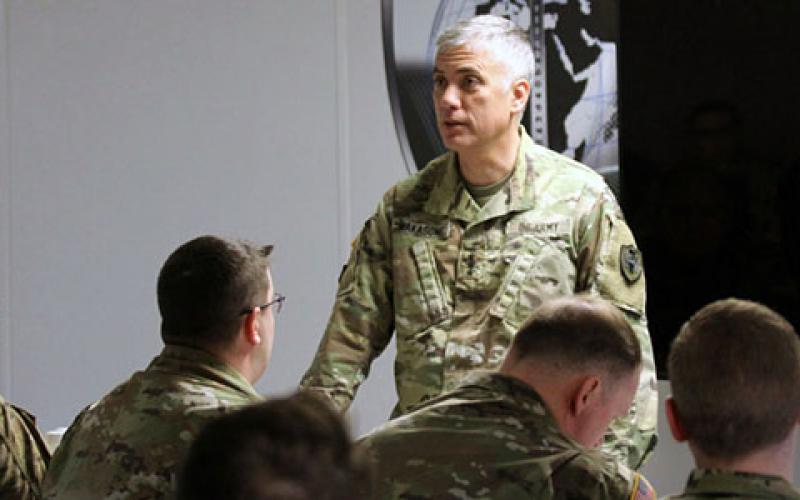
The nation’s cyber force, when called upon, deploys to other nations to protect against nefrarious adversarial behavior in the digital realm.
The U.S. Cyber Command, at the invitation of foreign governments, sends teams of cyber warriors overseas to aid in the search for, analysis of and protection against adversaries conducting cyber warfare.
While U.S. forces frequently deploy overseas, this is a different kind of military support. Instead of taking tanks, helicopters and ships, the U.S. military sends its cyber warriors, armed with their adroit offensive and defensive skills and digital tools.
“Hunt forward operations play a crucial role in the U.S. Cyber Command's persistent engagement strategy,” said Gen. Paul Nakasone, USA, commander, U.S. Cyber Command; director, National Security Agency; and chief, Central Security Service. “Hunt forward teams deploy to countries that have formally requested support to defend and harden U.S. networks and systems and critical infrastructure, while also yielding insights and intelligence valuable to both us and our international partners.”
Gen. Nakasone presented the keynote address on May 27 as part of AFCEA’s Spring Intelligence Symposium, held virtually May 25-27.
“We persistently engage our adversaries by enabling and acting,” he continued. “Enable means sharing threat indicators, providing warning, sharing personnel and providing insight. That includes hunt forward, offensive cyberspace operations and information operations.”
The release of the 2018 Defend Forward policy, which is the “cornerstone” of the Department of Defense’s cyber strategy, outlined the need for this particular kind of deployment.
“It set an important tone stressing just how serious these threats have become,” Gen. Nakasone said. “It acknowledged that defending the United States in cyberspace requires executing operations outside the U.S. military’s networks,” the commander explained.
Cyber Command began hunt forward deployments in 2018, based on “invitations from a foreign government to work with them to hunt on their networks to look for adversaries,” he stated. “Now why is that important? Because, as you can well imagine, as we go out broadly and hunt on different networks, we can find adversaries, we can identify their trade craft and identify their tools.”
In advance of the 2020 U.S. election, Cyber Command conducted more than 11 hunt forward operations overseas, he reported.
Additionally, the commander sees this activity by cyber forces expanding in the future. “I think this is a growth industry for us,” Gen. Nakasone observed. “I think this is exactly where we need to be, and I think this is what our partners would like to work with us on.”
He reasoned that by performing these forward deployed cyber missions, it broadly grows the protections against adversaries—China, Russia, North Korea and Iran, in particular—that are operating with a scope, scale and sophistication that has not been seen before, Gen. Nakasone acknowledged.
Finding and broadcasting information about an adversary's cyber weapon provides a crucial inoculation, the commander stressed.
“It is not just the country that requested us or the for the United States,” Gen. Nakasone said. “It means every single person that is able to get this information, so that they understand the tradecraft of our adversaries. That is really powerful.”
No comments:
Post a Comment